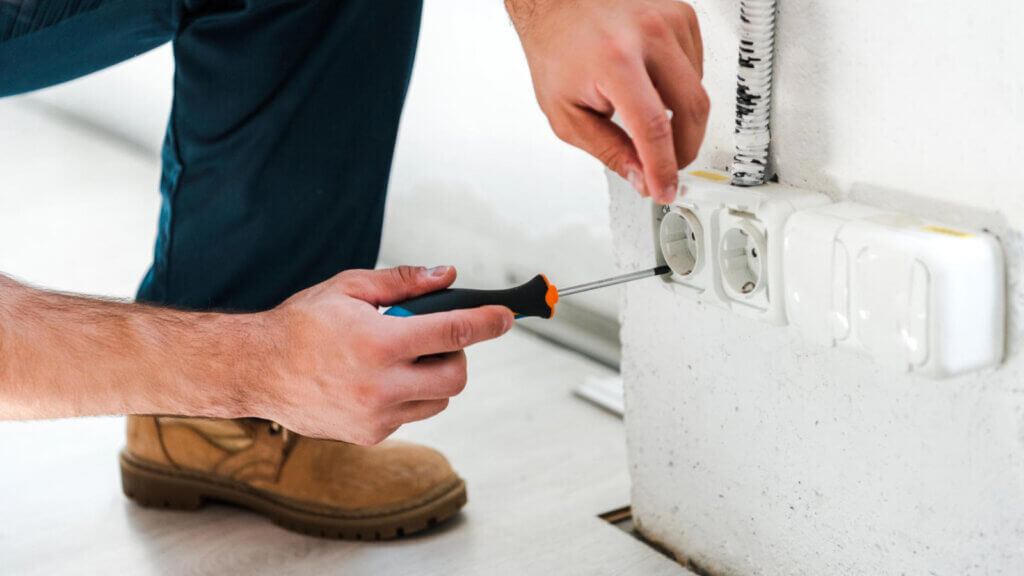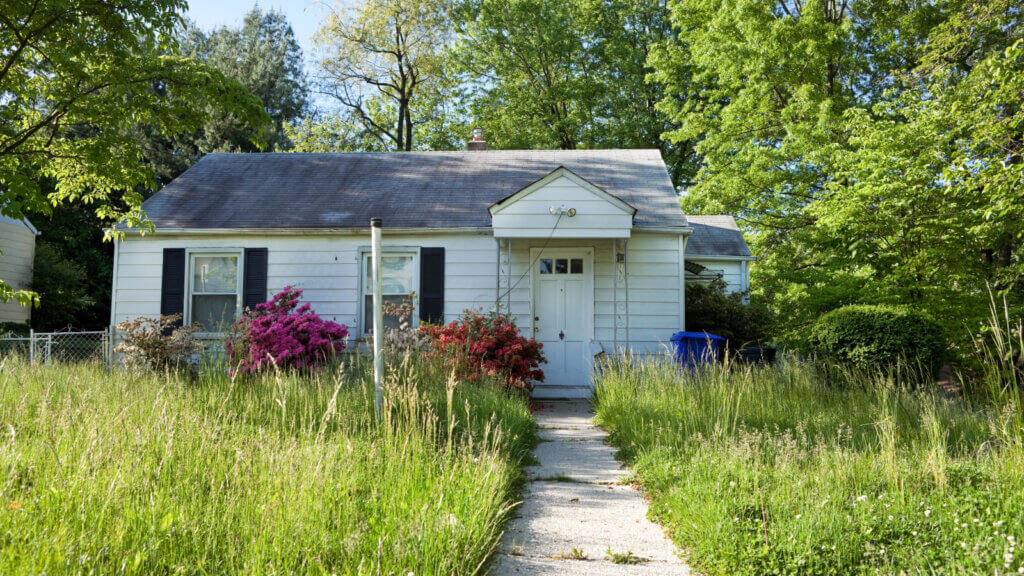Selling a fixer upper house fast doesn’t have to be overwhelming—especially if you understand the right tactics to attract the best possible buyers. Many homeowners face situations like inheritance, foreclosure, divorce, or relocation that force them to seek a quick, hassle-free sale. In other cases, the property might simply require major repairs that the owner cannot afford or manage.
Yet, a fixer upper can still catch the eye of real estate investors and cash buyers who see a home’s potential beneath its flaws. This article will guide you step by step on how to sell a fixer upper house fast so you can walk away with a fair sales price and minimal stress. We’ll discuss everything from evaluating your home’s condition, to marketing to the right target audience, to negotiating with potential buyers for the best results.
Understanding the Appeal of Selling a Fixer Upper
Why Cash Buyers and Investors Love Fixer Uppers
Whether your property needs a new roof, has structural issues, or simply demands a fresh coat of paint, there’s a strong market of real estate investors actively looking for fixer upper homes. These buyers, often cash buyers, see an opportunity to renovate and then resell or rent for a profit. Their focus on fixers is driven by several factors:
- Fewer Financing Roadblocks: Cash transactions bypass the lengthy mortgage approval process. Data from the National Association of REALTORS® (NAR) confirms that all-cash deals typically close much faster—often in about two weeks, compared to the 45-60 days common for financed purchases—minimizing potential deal-breakers and aligning perfectly with a seller’s need for speed and aligning perfectly with a seller’s need for speed, a service we provide for those who need to sell my house fast Phoenix.
- Significant Market Presence: All-cash offers are more common than many realize. In early 2024, NAR reported that cash sales accounted for roughly one-third (33%) of all existing-home transactions, highlighting the substantial pool of buyers who can move quickly. Furthermore, property data firms like ATTOM consistently report that investors make up a significant slice of the market, often purchasing 15-20% of single-family homes, many seeking properties with renovation potential.
- Lower Initial Cost: Properties with visible flaws often carry a lower asking price, enabling investors to acquire assets more cheaply and allocate the savings toward renovations.
- Return on Investment (ROI): By strategically updating key areas like kitchens and baths or adding usable square footage, investors aim to significantly increase the property’s value for future resale or rental income.
Common Reasons Sellers Need a Fast Sale
A variety of life events can lead homeowners to sell quickly:
There are several situations where property owners may need to sell quickly, often prioritizing speed over maximizing sale price. These circumstances include:
-
Inherited PropertiesWhen someone inherits a home in probate, they may want to get rid of it before ongoing costs (like property taxes and maintenance) pile up, especially if the property is distant from their current residence.
-
Foreclosure or BankruptcyTime-sensitive financial crises may push an owner to opt for a cash buyer’s speed, helping them avoid further credit damage and potentially salvage some equity before losing the property entirely.
-
RelocationWhether for a job or personal reasons, relocating can demand a quick closing to avoid double housing costs, particularly when the move is unexpected or to a distant location.
-
Expensive RepairsIf a property needs extensive repairs that the owner can’t afford, selling to an investor or cash buyer saves them the trouble and upfront costs of renovations that would otherwise be necessary to list on the traditional market.
Assess Your Property’s Condition
Major vs. Minor Repairs
Structural & Exterior Issues
Foundation cracks, settling issues, and framing problems can significantly reduce your home’s value and scare off potential buyers. High Priority
Leaking roofs, missing or damaged shingles, and poor drainage systems often lead to interior water damage and are red flags during inspections.
Evidence of termites, carpenter ants, or rodents can indicate structural compromise and will typically appear on inspection reports.
Systems & Safety Issues
Old or broken heating and air conditioning systems can be expensive to replace and may deter buyers looking for move-in ready homes. Costly Repair
Outdated wiring, overloaded circuits, aluminum wiring, and non-compliant electrical panels pose safety risks and must be addressed before sale.
Frequent leaks, outdated pipes (galvanized or polybutylene), poor water pressure, and sewer line issues can lead to extensive damage and repairs.
Minor repairs, like peeling paint or loose doorknobs, often cost little compared to major fixes yet can make a big difference in how a buyer perceives the home. Balancing what needs to be done versus the cost—and what potential buyers might demand—is key.
Gathering Inspection Reports and Estimates
For owners wanting to sell a fixer upper quickly, transparency is crucial. A professional inspection report provides credibility and reduces buyers’ fears of hidden problems. Having contractor estimates on hand (for both major and minor repairs) lets you:
- Set a realistic asking price that accounts for necessary fixes.
- Demonstrate honesty about the property’s flaws.
- Give prospective buyers a clear idea of cost and time to renovate.
Setting the Right Asking Price
Using Comparative Market Analyses (CMAs) to Determine Value
A comparative market analysis helps you see what similar homes in your area are selling for—and how your fixer upper compares. A real estate agent can prepare a CMA by evaluating factors like square footage, neighborhood trends, and current demand for fixer properties. Keep in mind:
- Selling as is typically means a lower selling price, but it also speeds up the closing process by minimizing repair requirements.
- If you invest in basic home improvements (like painting or boosting curb appeal), you can often set a slightly higher asking price.
Pricing for a Quick Sale vs. Top Dollar
While every seller wants top dollar, you may need to strike a balance between maximum profit and a quick close. Consider:
- Urgency of Your Timeline: If you must sell within weeks, list slightly under market value to attract cash buyers eager for a deal.
- Condition of Competing Listings: If competing properties are newer or more updated, a lower initial list price could help your home stand out.
- ROI on Repairs: Sometimes, small upgrades yield a solid bump in the sales price. For instance, a fresh coat of paint or a simple landscaping makeover can do wonders.
Marketing to Cash Buyers and Real Estate Investors

Targeted Strategies (Online Ads, Investor Networks, etc.)
To sell a fixer fast, go where the right buyers are:
- Online Platforms: List on popular websites, highlighting that your home is house as is or in need of TLC to pique investor interest.
- Investor Meetups: Local real estate investment associations (REIAs) are full of potential cash investors. Networking here can expedite a sale.
- Direct Mail Campaigns: In some areas, direct mail marketing to known cash buyers or real estate investors can be effective, especially if you include photos and repair estimates.
Highlighting “As-Is” Potential
Use your listing description to showcase the property’s upside. Emphasize:
- Floor Plan: Unique layouts, extra rooms, or the possibility to add a bathroom or bedroom.
- Location Perks: Proximity to schools, parks, shopping centers—whatever might attract many buyers.
- Renovation Ideas: Mention potential for a kitchen remodel or finishing the basement to increase property value.
Remember that cash buyers often don’t mind a fixer’s condition as long as the potential ROI is clear, which is how many homeowners sell house in Tacoma in as-is condition to us.
Disclosing Repairs and Renovations
Building Trust Through Transparency
When you’re aiming to sell a fixer upper house fast, honesty about significant repairs can help you avoid broken deals later. Buyers appreciate full disclosure on issues like plumbing leaks, mold, or an aging roof. Being upfront:
- Reduces last-minute inspection surprises.
- Fosters trust and keeps negotiations smoother.
- Can lead to more serious buyers who understand the property’s challenges.
Potential Buyer Incentives (Repair Credits, Home Warranties)
Sometimes, offering incentives:
- Repair Credits: Provide a dollar credit at closing so the buyer can fix certain items themselves.
- Home Warranty: A one-year warranty can give prospective buyers confidence that unexpected repair costs will be covered.
These tactics can tip the scale in your favor, especially if you’re determined to close quickly.
Home Improvements That Make a Big Difference
Low-Cost, High-ROI Upgrades
While large structural repairs might be off the table (due to budget or time constraints), certain minor repairs can yield substantial returns:
- Fresh Coat of Paint: Neutral tones enhance brightness and help potential buyers visualize living in the space.
- Landscaping Touch-Ups: Trimming overgrown shrubs or planting flowers is a cost-effective way to improve curb appeal.
- Lighting and Fixtures: Updated light fixtures or modern faucets can transform a dated interior without breaking the bank.
- Deep Cleaning: Sometimes, the simplest tasks—like shampooing carpets or scrubbing baseboards—go a long way in making a property feel more welcoming.
Boosting Curb Appeal
Home’s curb appeal is your first impression, which influences whether buyers schedule a showing. Some fast and affordable ways to upgrade the exterior include:
- Pressure-Washing: Clean driveways, siding, or walkways to show the home is well-maintained.
- New House Numbers or Mailbox: Small details can make your listing photos pop.
- Front Door Paint or Replacement: A vibrant yet tasteful front door color can catch attention and signal a well-cared-for home.
Negotiating and Closing the Deal
Navigating Inspection Contingencies
Even when selling a fixer, many buyers will request an inspection. Here’s how to keep negotiations smooth:
- Set Clear Expectations: Your listing should explicitly state the home is being sold “as-is” or note which repairs you’re willing to cover.
- Offer Documentation: Share your inspection report upfront to demonstrate honesty and reduce buyer demands for large price cuts.
- Stay Flexible: A buyer might negotiate for a lower selling price in exchange for handling significant repairs themselves.
Best Practices for Working with a Cash Buyer
A cash buyer often means fewer closing costs, no financing delays, and a faster overall sale. To ensure a positive experience:
-
Verify Proof of Funds
Ask for bank statements or verification letters to confirm the buyer’s financial capability before proceeding with the transaction.
-
Clarify Closing Timeline
Some cash buyers can close in as little as a week, while others may need a bit more time; establish your preferred dates to avoid confusion.
-
Understand Possible Discount
While some cash buyers may expect a discounted price for providing speed and convenience, at iBuyHomes.com we aim to provide a fair offer based on the as-is condition, helping owners who need to sell home Apopka quickly without excessive price cuts.
Partnering with a Knowledgeable Real Estate Agent
Agent vs. Direct Cash Buyer
If you’re not leaning toward a direct, off-market sale, hiring an experienced real estate agent can be invaluable. They can:
- List your property to a broader open market audience.
- Help you conduct a comparative market analysis (CMA) for accurate pricing.
- Advise on which minor repairs are worth the investment.
Still, if your priority is speed and simplicity over extracting every last dollar, a direct cash buyer might fit better. Companies like iBuyHomes.com specialize in purchasing homes quickly, often as is, saving you from making home improvements or paying closing costs out of pocket.
Leveraging an Agent’s Network
Real estate agents often have buyer lists—including real estate investors—ready to pounce on properties that require extensive repairs but have strong profit potential. An agent with a proven track record of handling fixers can recommend:
- The best listing strategy (traditional MLS vs. private investor networks).
- Reasonable terms if the buyer requests repairs or credits.
- Assistance with the paperwork and the closing process so you can sell a fixer upper house fast without missing important details.
Your Fast-Track Strategy: From Fixer-Upper to Sold
Selling a fixer upper can be quick and profitable with the right mix of strategy, pricing, and marketing. By disclosing necessary repairs openly, targeting the right cash buyers or real estate investors, and making a few minor repairs where it counts, you’ll maximize your sales price while minimizing stress. Remember to evaluate your property’s condition thoroughly so you can confidently negotiate and sell your fixer upper house fast—even if you choose to sell the house as is.
Ultimately, the method you pick depends on your timeline, budget, and personal priorities. If speed and convenience are critical, consider reaching out to a dedicated cash buyer like iBuyHomes.com for a straightforward closing without costly repairs, especially if you need to sell fixer upper in Deltona. With transparency, a clear understanding of your property’s strengths and weaknesses, and a well-planned pricing strategy, you can attract the right buyers, get a fair deal, and move on to the next chapter with peace of mind.


